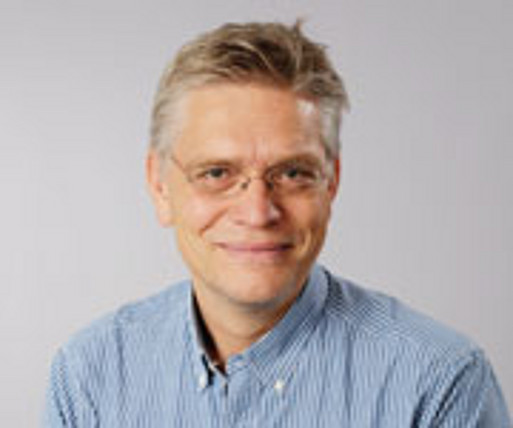Univ.-Prof. Dr. rer. physiol. Hansjörg Schild

General Information
- schild@uni-mainz.de
- Current position
- Professor of Immunology, C4
Academic Education
- 1987 - 1987
- Summer student, Basel Institute for Immunology, Switzerland
- 1985 - 1987
- Diploma Thesis, German Cancer Research Center, Heidelberg, Germany, V. Schirrmacher
- 1981 - 1985
- Human Biology, University of Marburg, Germany
Scientific Degrees
- Habilitation
- "Immunology and Cell Biology", University of Tübingen, Germany, 2000, Prof. H.-G. Rammensee
- PhD thesis
- University of Marburg and Max-Planck-Institute for Biology, Tübingen, Germany, 1989, H.-G. Rammensee
Professional Career
- 2003 - present
- Director, Institute for Immunology at the University Medical Center of the Johannes Gutenberg University Mainz
- 2002
- Appointment as Full Professor of Immunology at the University of Marburg (declined)
- 1996 - 2003
- Group leader, Institute for Cell Biology, Dept. of Immunology, University of Tübingen, Germany
- 1993 - 1996
- Group leader, German Cancer Research Center, Heidelberg, Germany
- 1990 - 1993
- Postdoc, Stanford University Medical School (Dr. Mark Davis), Stanford, USA
- 1990 - 1993
- Postdoc, Max-Planck-Institute for Biology, Tübingen, Germany
Honours and Other Activities
- 2013 - present
- Ombudsman for scientific misconduct at the Paul Ehrlich Institute, Langen, Germany
- 2012 - present
- Member Scientific Advisory Board TWINCORE GmbH, Hannover, Germany
- 2012 - 2016
- Member Scientific Advisory Board TRON gGmbH, Mainz
- 2011 - present
- Member Scientific Advisory Board of the Max Planck Graduate Center Mainz
- Member of DGfI scientific advisory board
- 2009 - 2013
- Deputy Speaker of the Graduate School 1043 "Immunotherapy" at the University Medical Center of the Johannes Gutenberg University Mainz
- 2008 - 2017
- Speaker of the "Forschungszentrum Immuntherapie" (FZI) at the University Medical Center of the Johannes Gutenberg University Mainz
- 2008 - 2016
- Member of DFG Review Board 204 "Microbiology, Virology, Immunology"
- 2005 - 2008
- Coordinator (with Prof. C. Huber) of the Immunology Excellence Cluster "Immunointervention" of the Johannes Gutenberg University Mainz
- 2004 - 2008
- Deputy speaker, SFB 432
- 2000
- Georges Köhler Award, German Immunological Society
- 1993
- Scholarship of the German Science Foundation
Selected Publications
- Probst HC, Muth S, Schild H (2014) Regulation of the tolerogenic function of steady-state DCs. Eur J Immunol. 44:927-33
- Muth S, Schütze K, Schild H, Probst HC (2012) Release of dendritic cells from cognate CD4+ T-cell recognition results in impaired peripheral tolerance and fatal CTL autoimmunity. Proc Natl Acad Sci USA 109:9059-64
- Srokowski CC, Masri J, Hövelmeyer N, Krembel AK, Tertilt C, Strand D, Mahnke K, Massoumi R, Waisman A*, and Schild H* (2009) Naturally occuring short splice variant of CYLD positively regulates dendritic cell function. Blood 113:5891-5 * joint senior authors
- Reinecke J, Tenzer , Hasselmayer O, Rupnik M, Schrattenholz A, Schild H*, von Eichel-Streiber C* (2007) Autocatalytic cleavage of Clostridium difficile toxin B. Nature 446:415-9 * joint senior authors
- Osterloh P, Linkemann K, Tenzer S, Rammensee H-G, Radsak MP, Busch DH, Schild H (2006) Proteasome shape the repertoire of T cells participating in antigen-specific immune responses. Proc Natl Acad Sci USA 103:5042-7
- Warger T, Hilf N, Rechtsteiner G, Carrick DM, Jonuleit H, von Landenberg P, Rammensee H-G, Nicchitta CV, Radsak MP, Schild H (2006) Interaction of TLR2 and TLR4 ligands with the N-terminal domain of Gp96 amplifies innate and adaptive immune responses. J Biol Chem 281:22545-53
- Toes REM, Nussbaum AK, Degermann S, Schirle M, Emmerich NPN, Kraft M, Laplace C, Zwinderman A, Dick TP, Müller J, Schönfisch B, Schmid C, Fehling HJ, Stevanovic S, Rammensee HG, Schild H (2001) Discrete cleavage motifs of constitutive and immuno-proteasomes revealed by quantitative analysis of cleavage products. J Exp Med 194:1-12
- Stoltze L, Schirle M, Schwarz G, Schröter C, Thompson MW, Hersh LB, Kalbacher H, Stevanovic S, Rammensee HG, Schild H (2000) Two new proteases in the MHC class I processing pathway. Nat Immunol 1:413-418
- Schild H, Mavaddat N, Litzenberger C, Ehrich EW, Davis MM, Matis L, Draper RK, Chien YH (1994) The nature of major histocompatiblity complex recognition by γδ T cells. Cell 76:29-37
- Schild H, Rötzschke O, Kalbacher H, Rammensee HG (1989) T lymphocyte tolerance to self proteins is limited by peptide presentation. Science 247:1587-1589